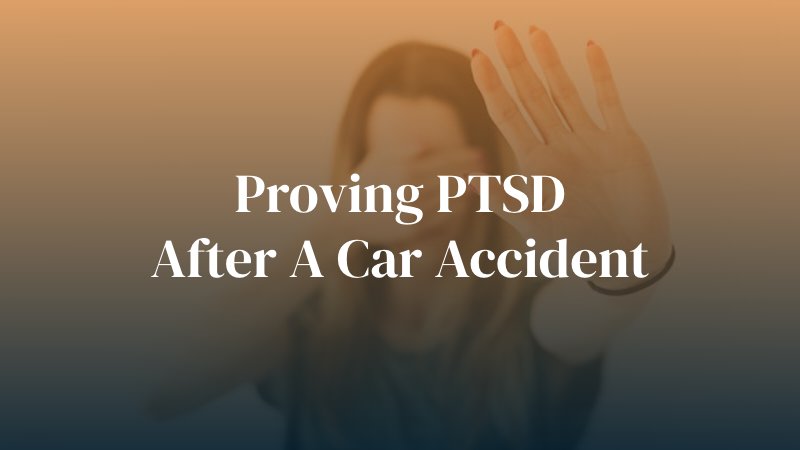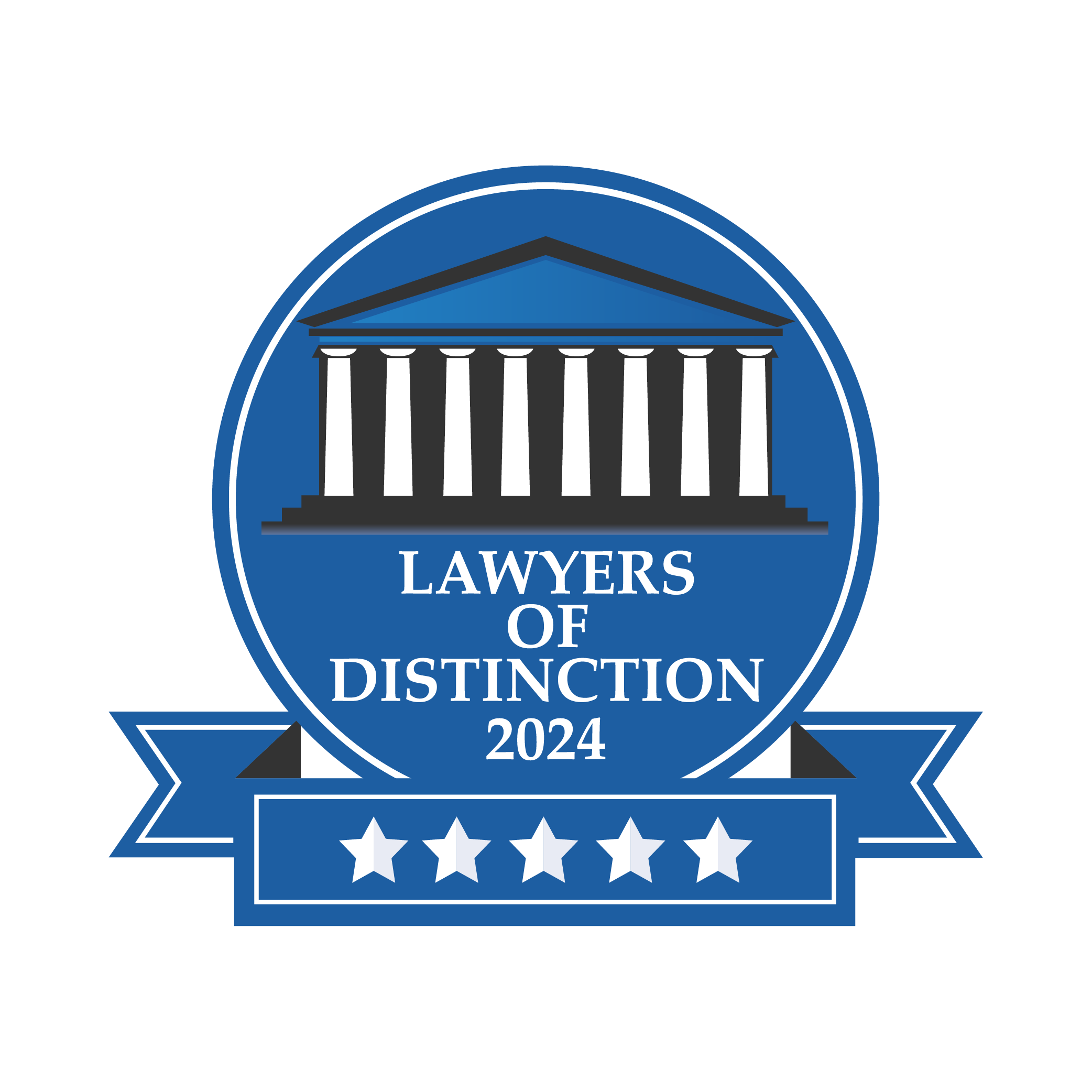When someone is in a car accident, it’s not unusual for them to file an insurance claim or personal injury lawsuit to try to recover compensation for injuries. Most people think of physical injuries in these types of cases, but there are some invisible injuries that can have just as much of an effect on someone’s life. Post-traumatic stress disorder (PTSD) can affect so many aspects of a person’s life, making it essential to understand how it occurs and how you can prove you’re dealing with this after being in an accident. Speaking with an experienced Las Vegas personal injury lawyer can help you pursue the compensation you need for both physical and emotional harm.

Understanding PTSD After a Car Accident
Post-traumatic stress disorder can develop after someone experiences or witnesses a traumatic event. According to the DSM-5 (Diagnostic and Statistical Manual of Mental Disorders, Fifth Edition), PTSD involves the following:
- Intrusive recollections or flashbacks that make you relive the accident as though it’s happening again
- Nightmares or distressing dreams related to the crash
- Avoidance behaviors, such as refusing to drive or even ride in a car
- Emotional numbness or feeling detached from people and activities
- Heightened startle response or extreme jumpiness Hypervigilance, or being constantly on edge and watching for danger
- Changes in mood, including irritability, guilt, shame, or anxiety
Insurance companies often downplay emotional effects because they’re not as visible as physical injuries. However, these symptoms can severely impact quality of life.
Why Car Accidents Can Trigger PTSD
Motor vehicle crashes are sudden, violent, and unpredictable events, which can shock both the body and mind. Severe injuries, a genuine threat to life, or the trauma of seeing another person harmed or killed can overwhelm normal coping mechanisms. The more unexpected and life-threatening the event, the higher the risk of lasting psychological trauma.
Types of Evidence That Help Prove PTSD
Since PTSD isn’t visible like a broken bone or a scar, you need strong evidence to show how the condition has affected you and how the accident caused it. Evidence used often includes:
Medical Records
One of the clearest ways to show PTSD is through your medical records. This includes the initial diagnosis from a qualified professional, notes from counseling or therapy sessions, and any treatment plans. Consistent documentation over time shows that you sought help, are actively getting care, and have a verified medical condition related to the crash.
Expert Testimony
PTSD is a recognized mental health disorder, but proving it often requires getting input from experts like psychologists, psychiatrists, or licensed counselors. These professionals can explain your diagnosis, discuss the severity of your symptoms, and connect those symptoms directly to the car accident. Their expertise adds weight and credibility that can be hard for an insurance adjuster or defense attorney to dismiss.
Personal Testimony
Your own story matters. Sharing what day-to-day life has been like since the crash – the flashbacks, stress, fear of driving, emotional changes, or how work and relationships have been affected – helps paint a picture no medical record can fully capture.
Witness Statements
Sometimes the people around you notice changes you might not recognize or feel comfortable admitting. Friends, family members, and even co-workers can describe how your personality, mood, habits, or abilities have shifted since the accident. Honest accounts from these witnesses make it harder for others to argue that your symptoms are exaggerated or unrelated to the crash.
Accident Evidence
Documentation of the crash itself helps establish the link between the traumatic event and your PTSD. This can include photos from the scene, the official police report, damage assessments, and medical reports describing physical injuries you sustained. The more vivid and connected this evidence is to a traumatic moment, the easier it is to show how the event caused long-lasting psychological effects. The right combination of evidence can turn an invisible injury into a well-documented, valid claim.
Common Mistakes to Avoid in PTSD Claims
Filing a PTSD claim after a car accident can be challenging, and certain missteps can make it harder to get the compensation you deserve. Insurance companies are quick to look for reasons to downplay your symptoms or argue that your condition isn’t connected to the crash. Avoiding these mistakes can help strengthen your case.
Delaying Medical Treatment or Diagnosis
One of the biggest red flags for insurers is a long gap between the accident and when you first sought help for PTSD symptoms. Waiting too long gives them an opening to argue that your condition isn’t related to the crash. Getting evaluated by a qualified mental health professional as soon as possible helps document the link from the start.
Posting Contradictory Behavior on Social Media
Insurance adjusters and defense attorneys routinely check your online activity. Photos or posts that make it appear you’re unaffected, like traveling, partying, or engaging in activities you’ve claimed to be avoiding, can be used to attack your credibility. Limiting or pausing social media activity during your claim helps you avoid sending the wrong message.
Downplaying Symptoms to Doctors or Insurers
Sometimes people have a difficult time talking about their feelings and admitting how much they’re struggling. While this is understandable, it can severely hinder your ability to obtain appropriate compensation for the effects PTSD is having on your life. Make sure you explain exactly how difficult your life has been as a result of the accident and the emotional struggles you’re facing.
Skipping Therapy or Stopping Treatment Too Soon
If you start therapy or treatment and then don’t show up to sessions, insurers can claim your condition improved or wasn’t severe to begin with. Following your provider’s recommended plan – not just for legal purposes but for your well-being – shows how much you’ve really been affected. Avoiding these common mistakes can help you protect your claim.
Why You Need a Personal Injury Lawyer For PTSD Claims
PTSD claims can be more complex than cases involving only physical injuries. A personal injury lawyer takes a number of steps to help you build your case.
- Proving That PTSD Came From The Car Accident: This involves gathering medical records, therapy notes, and expert evaluations to show that the crash directly caused your PTSD.
- Working With Mental Health Professionals and Experts: Coordinating with psychologists or psychiatrists who can explain your diagnosis and testify about its impact on your daily life.
- Negotiating With Insurers: Contesting low settlement offers and presenting strong evidence to get compensation that reflects the real cost of treatment, loss of income, and diminished quality of life.
- Filing a Lawsuit. If you’re unable to get a fair settlement offer from the insurance company, a lawyer will prepare your case for trial and represent you in court to fight for the compensation you deserve.
A Las Vegas car accident lawyer’s guidance can be the difference between obtaining compensation that barely covers treatment costs and a resolution that truly addresses the long-term effects PTSD has on your life. Contact us today to schedule a free consultation.

